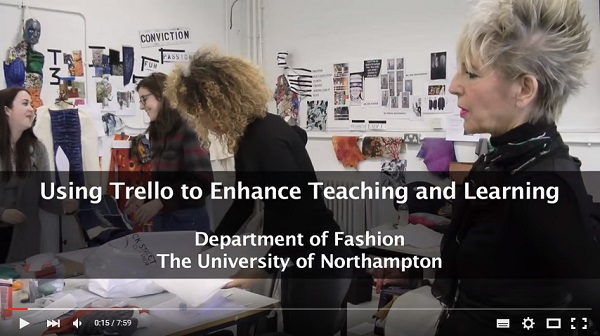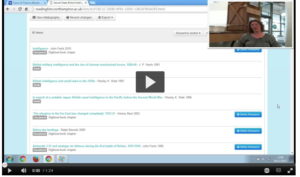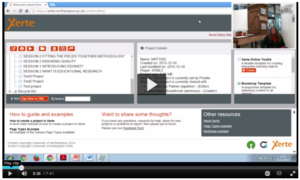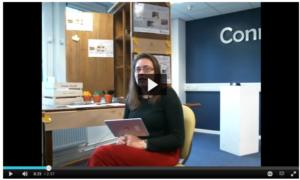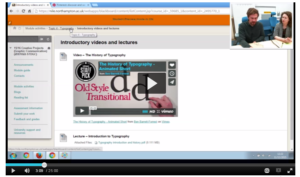Jane Mills, Senior Lecturer for Fashion at the University of Northampton and BA (Hons) Fashion, Textiles for Fashion, and Footwear and Accessories students, Bregha, Gemma, Louise and Upasna discuss their use of the Trello App to support their group work projects.
As part of the recent S.H.E.D. roadshow, we invited teaching staff to share their successful practice. The example below could be a useful approach for anyone looking to encourage their students to research and understand their subject, and to share that understanding with their peers.
In a third year module on Biodiversity and Conservation, Professor Jeff Ollerton asks his students to engage with a range of scientific writing published around the subject. This includes articles from peer-reviewed journals, UK Parliamentary briefings, scientific journalism, and more. In this part of the module, students are initially provided with recommended articles, and asked to read them critically, attending to the aims, message and methods, and considering whether the conclusions are justified. They then discuss their views in class, where their contributions are assessed using a rubric that is made available to all students in advance. The students are then asked to identify a paper of their choice and deliver a 5 minute verbal presentation to the class. The grade for this is combined with the contribution grade to make up 30% of the total module grade (other parts of the module are assessed using a report and a group debate).
These tasks not only help to ensure that students engage with research and develop their understanding, but they also build confidence and presentation skills. The attached Assessment Brief gives more detail about the assessment structure.
George Dimmock talks about the ways in which Academic Librarians can support University of Northampton staff.
In this video Ali talks about experiences with online peer observation as part of a teaching qualification for University of Northampton staff.
In this video James talks through the ways that he has changed his use of NILE to make learning more interactive and to ensure students are better prepared for class.
In this video Sylvie talks about how she has been changing the delivery of academic skills to develop the the level of integration between generic academic skills and subject specific skills. In addition, she explains the process of integrating blended approaches into CfAP’s (Centre for Achievement and Performance) delivery.
Recent Posts
- Blackboard Upgrade – February 2026
- Blackboard Upgrade – January 2026
- Spotlight on Excellence: Bringing AI Conversations into Management Learning
- Blackboard Upgrade – December 2025
- Preparing for your Physiotherapy Apprenticeship Programme (PREP-PAP) by Fiona Barrett and Anna Smith
- Blackboard Upgrade – November 2025
- Fix Your Content Day 2025
- Blackboard Upgrade – October 2025
- Blackboard Upgrade – September 2025
- The potential student benefits of staying engaged with learning and teaching material
Tags
ABL Practitioner Stories Academic Skills Accessibility Active Blended Learning (ABL) ADE AI Artificial Intelligence Assessment Design Assessment Tools Blackboard Blackboard Learn Blackboard Upgrade Blended Learning Blogs CAIeRO Collaborate Collaboration Distance Learning Feedback FHES Flipped Learning iNorthampton iPad Kaltura Learner Experience MALT Mobile Newsletter NILE NILE Ultra Outside the box Panopto Presentations Quality Reflection SHED Submitting and Grading Electronically (SaGE) Turnitin Ultra Ultra Upgrade Update Updates Video Waterside XerteArchives
Site Admin

